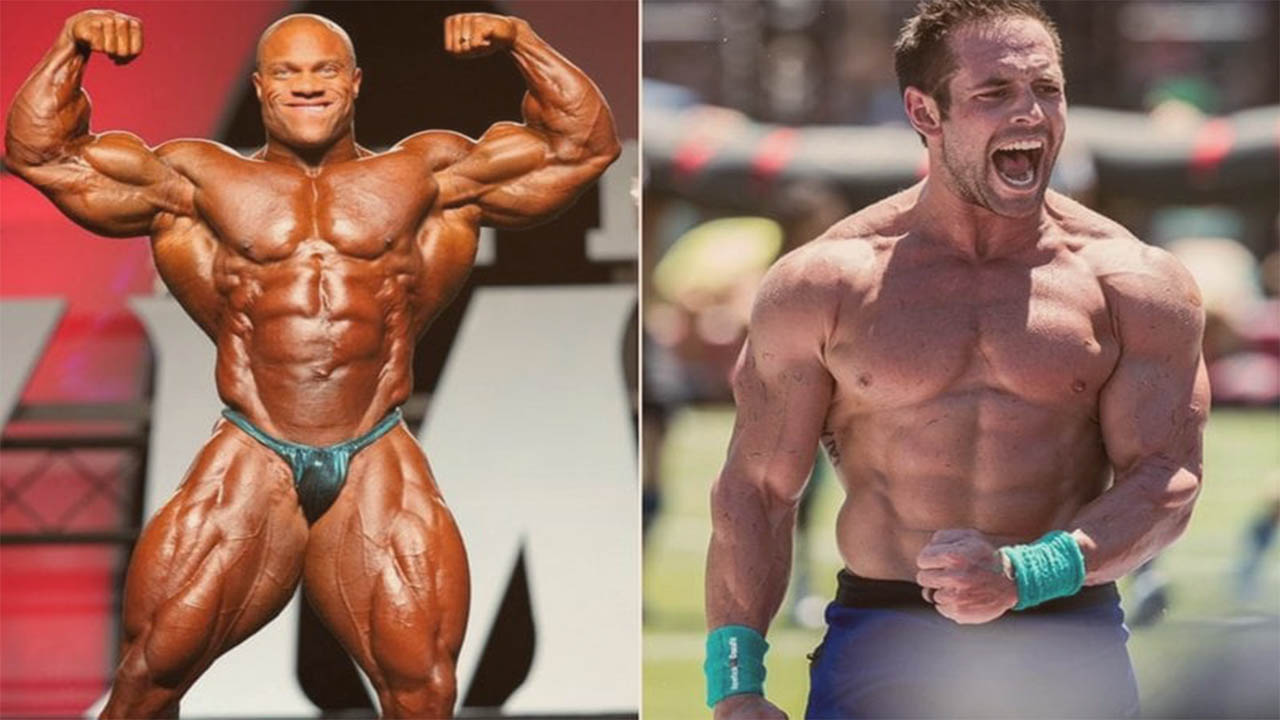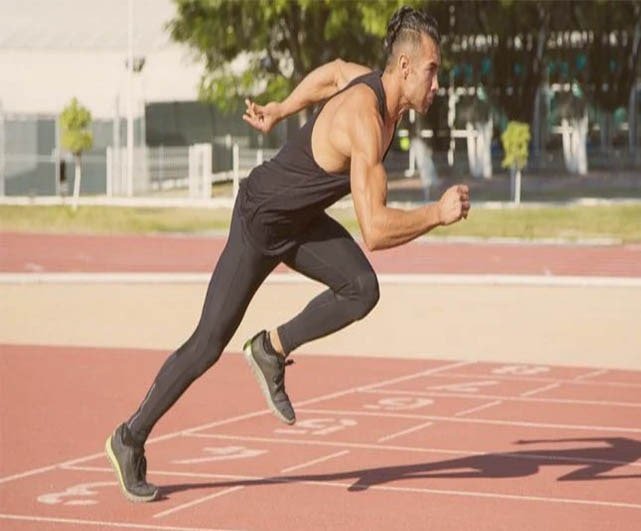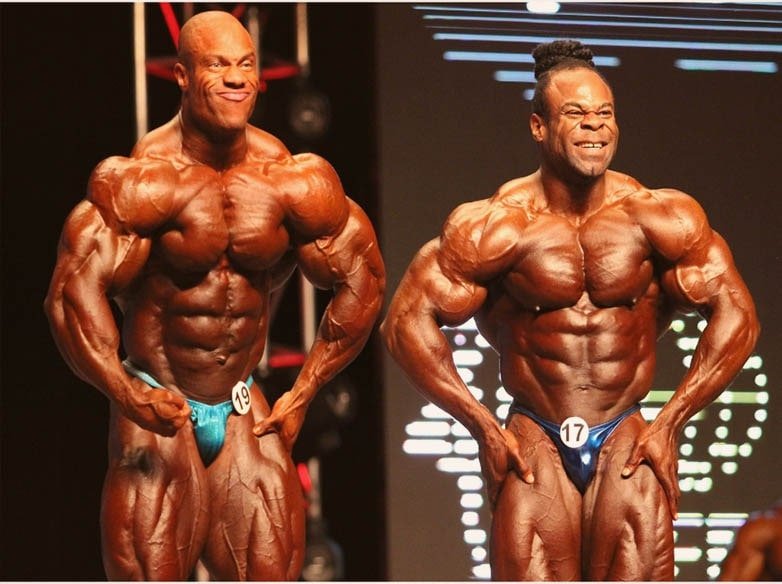Athletes and bodybuilders are two distinct groups of individuals who dedicate themselves to fitness and physical performance. While they both engage in rigorous training and maintain disciplined lifestyles, their training focus, performance goals, and overall approaches to fitness differ significantly. In this article, we will explore the key differences between athlete vs bodybuilder, examining their training focus, performance goals, diet and nutrition, physical appearance, training intensity and volume, injury risk, and prevention, as well as mental and psychological factors.

What is Athlete and Bodybuilder?
Athlete
An athlete is an individual who participates in various sports or physical activities and competes at a professional, semi-professional, or amateur level. Athletes engage in rigorous training to improve their physical performance, endurance, strength, and overall skill in their respective sports. They may specialize in a specific sport or participate in multiple disciplines, such as running, swimming, basketball, soccer, and more. Athletes often strive for excellence and may represent their country, team, or organization in local, national, or international competitions.

Bodybuilder
A bodybuilder is an individual who engages in the sport of bodybuilding, which focuses on building and developing muscle mass and achieving a well-defined and symmetrical physique. Bodybuilders typically participate in contests where they are judged based on their muscularity, size, definition, and overall appearance. Their training and nutrition programs are designed to maximize muscle growth while reducing body fat to showcase their muscles’ shape and size. Bodybuilders often perform specific exercises and follow strict diets to attain their desired physique.

Performance Goals of Athlete vs Bodybuilder
Athletes measure their success based on their achievements in their respective sports. They strive for skill mastery, competitive success, and overall physical performance. Their goals revolve around excelling in their chosen sport, whether it be winning competitions, breaking records, or achieving personal bests. For athletes, performance is the ultimate goal.
Bodybuilders, on the other hand, set their sights on muscle size, definition, symmetry, proportionality, and overall aesthetics. Their primary objective is to develop a visually appealing physique that showcases their hard-earned muscle mass. Bodybuilders work towards competition success in bodybuilding events, where they are judged based on their muscularity, conditioning, and overall presentation on stage.
Diet and Nutrition of Athlete vs Bodybuilder
Athletes maintain a balanced and varied diet that supports their performance and recovery needs. They pay attention to macronutrient ratios and timing, ensuring they consume sufficient calories to meet the demands of their training and activity levels. Their diet focuses on fueling their bodies with the nutrients necessary for optimal performance.
Bodybuilders adopt a more precise approach to diet and nutrition. They closely monitor their food intake, with an emphasis on consuming higher amounts of protein to support muscle growth and recovery. Bodybuilders often manipulate their macronutrient ratios during different training phases, such as bulking and cutting, to achieve their desired body composition. They may also adjust their caloric intake to create a surplus or deficit based on their specific goals.
Training Intensity and Volume
Athletes adjust their training intensity based on the demands of their sport. They engage in varied-intensity workouts, with high-volume training often incorporated during the off-season to build strength, endurance, and overall physical capacity. Athletes also follow periodization strategies, which involve tapering their training to ensure optimal performance during competitions.
Bodybuilders prioritize progressive overload and high-intensity resistance training. They typically engage in moderate to high-volume workouts that target specific muscle groups for hypertrophy. The focus is on achieving muscle isolation and establishing a strong mind-muscle connection to maximize muscle growth and development.
Injury Risk and Prevention
Athletes face a higher risk of acute injuries due to the competitive nature and contact involved in many sports. Injury prevention becomes a significant aspect of their training. Athletes engage in sport-specific exercises and techniques that help reduce the likelihood of injuries. Additionally, they incorporate rehabilitation and recovery programs to address any injuries that may occur during their athletic pursuits.
Bodybuilders, compared to athletes, generally have a lower risk of acute injuries. However, they are not immune to overuse injuries and imbalances that can arise from their intense training regimens. Bodybuilders focus on preventing these types of injuries by maintaining proper form and technique, balancing muscle development, and addressing any muscle imbalances through targeted exercises.
Mental and Psychological Factors
Athletes develop mental toughness, resilience, and a strong competitive mindset to excel in their chosen sports. They often face performance anxiety and pressure, which they must learn to manage effectively. Athletes engage in goal setting, visualization techniques, and mental preparation strategies to optimize their performance in high-pressure situations.
Bodybuilders are driven by aesthetic goals and may face concerns related to body image and self-perception. They cultivate self-discipline, dedication, and a strong work ethic to stay committed to their rigorous training and nutrition routines. However, bodybuilders may also be susceptible to body dysmorphia or other psychological challenges related to their physical appearance. Prioritizing psychological well-being is crucial for bodybuilders.
Differences & similarities between Athletes and Bodybuilder
Differences
Training Focus:
- Athletes’ training is specific to their sport and involves a wide range of activities, including skill practice, cardio, agility training, and sport-specific drills.
- Bodybuilders’ training revolves around resistance training, with a focus on isolating and targeting specific muscle groups to stimulate muscle growth.
Physique Goals:
- Athletes aim to improve overall athletic performance, which may or may not result in a significant increase in muscle mass, depending on the sport.
- Bodybuilders aim to achieve a well-muscled and aesthetically pleasing physique with low body fat percentage, typically emphasizing muscle size and definition.
Nutrition:
- Athletes focus on maintaining a balanced diet that supports their performance needs, including sufficient energy for training and competition, as well as recovery.
- Bodybuilders follow strict and often specialized diets, with precise macronutrient ratios, to support muscle growth, promote fat loss, and achieve their desired level of muscle definition.
Similarities
Discipline and Dedication:
- Both athletes and bodybuilders require a high level of discipline and dedication to their training, nutrition, and lifestyle choices to excel in their respective fields.
Physical Fitness:
- Both athletes and bodybuilders prioritize physical fitness and regularly engage in exercise and training to improve their performance and achieve their goals.
Competition:
- Both athletes and bodybuilders may participate in competitive events. Athletes compete in various sports, while bodybuilders participate in bodybuilding contests to showcase their physiques.
FAQ about Athlete vs Bodybuilder
Can an athlete become a bodybuilder or vice versa?
Yes, an athlete can transition into bodybuilding and vice versa. The training and nutrition focus would need to shift accordingly to adapt to the new goals.
Which one requires more diverse training?
Athletes generally require more diverse training as they need to excel in a range of physical activities specific to their sport. Bodybuilders, on the other hand, focus primarily on resistance training.
Do bodybuilders participate in sports other than bodybuilding contests?
While bodybuilders may have excellent physical abilities, they typically do not compete in traditional sports events, as their training and focus are geared toward bodybuilding competitions.
Can an athlete incorporate bodybuilding exercises into their training routine?
Yes, athletes can include bodybuilding exercises in their training routines to improve specific muscle groups’ strength and size, provided it aligns with their sport’s demands.
Do bodybuilders and athletes follow the same diet?
No, the diets of bodybuilders and athletes differ. Athletes’ diets are tailored to meet the demands of their sports, while bodybuilders follow specialized diets aimed at maximizing muscle growth and reducing body fat.
Is it possible for an athlete to have a bodybuilder-like physique naturally?
It is possible for some athletes, particularly those in strength-based sports, to develop a bodybuilder-like physique naturally through their training. However, the level of muscle mass and definition may not be as pronounced as that of competitive bodybuilders
Conclusion
In conclusion, athletes and bodybuilders have distinct training focuses, performance goals approaches to diet and nutrition, physical appearances, training intensities, and volumes, injury risks and prevention strategies, as well as mental and psychological factors. While they share a dedication to fitness, their paths diverge in terms of their ultimate objectives and priorities. Whether one chooses the athletic route or the bodybuilding path depends on individual preferences, goals, and aspirations in the realm of physical fitness.